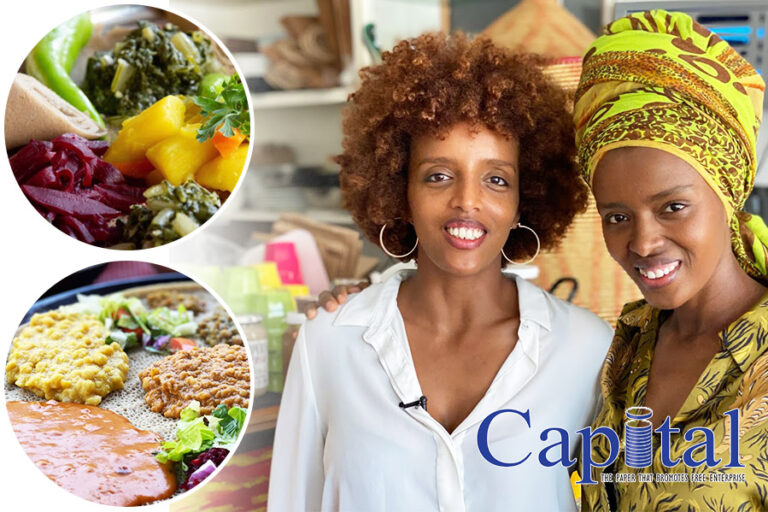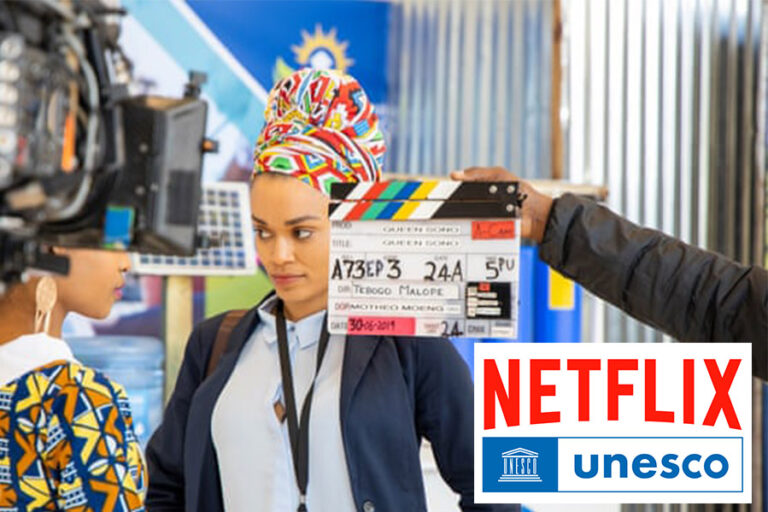Boeing launched the new 777-8 Freighter and expanded its market-leading 777X and freighter families of jetliners with an order for up to 50 aircraft from one of the world’s largest cargo carriers, Qatar Airways.
Qatar Airways will be the 777-8 Freighter launch customer with a firm order for 34 jets and options for 16 more, a total purchase that would be worth more than $20 billion at current list prices and the largest freighter commitment in Boeing history by value. The order also supports hundreds of U.S. suppliers from across 38 states, will sustain more than 35,000 U.S. jobs, and provide the American economy with an annual estimated economic impact of $2.6 billion during the contract’s delivery period.
Featuring advanced technology from the new 777X family and the proven performance of the market-leading 777 Freighter, the 777-8 Freighter will be the largest, longest-range and most capable twin-engine freighter in the industry. With payload capacity nearly identical to the 747-400 Freighter and a 25% improvement in fuel efficiency, emissions and operating costs, the 777-8 Freighter will enable a more sustainable and profitable business for operators.
Boeing launches 777-8 freighter
Boeing, ThinkYoung partner to teach 21st century skills to youth in Sub-Saharan Africa
In partnership with Boeing, ThinkYoung will host its 12th, 13th and 14th ThinkYoung Coding School in Kenya, Rwanda and Ethiopia in 2022. Students between 11 and 19 will get free lessons in computer programming through sessions with coding experts. Classes will cover a wide range of activities, such as robotics, drones and aviation workshops.
Geared towards young programmers, the 2022 schools will feature an interactive curriculum that includes coding skills in the aviation industry, robotics and drones. The programme – which is free of charge – provides students with a unique experience of a school characterized by innovative approaches in a non-formal educational setting, addressing the real needs of the youth of today and the skills required by the labor market.
These real-world interactions want to make learning more approachable and long-lasting. Following the vocation of the program to align the labor market needs with the educational curriculum, students will develop oral and communication skills to deliver clear and effective presentations about their own ideas.
Spice up your life: 5 best Ethiopian eateries in Israel
A deep dive into the flavorful world of authentic Ethiopian cuisine in the Holy Land.
By Sol Gruffy
Ethiopian food is one of the most fascinating and delicious cuisines in the world thanks to its rich dishes, varied flavors and enough spices to make you jump up and down with excitement.
Ethiopian cuisine usually consists of vegetarian or meat dishes in a form of a thick stew, served with the famous injera bread. Injera is a large sourdough flatbread made of fermented teff flour and is meant to be eaten with your hands. An Ethiopian meal without injera is practically illegal!
Despite the similarities to Israeli food culture, such as communal dining and large hearty portions, Ethiopian cuisine has not yet integrated into the Israeli mainstream.
Fortunately, in recent years Ethiopian food has found its way into the hearts of local foodies thanks to a perfect mixture of healthy ingredients, intense flavors, and a wide variety of vegan options.
In Israel, most traditional Ethiopian restaurants are in Tel Aviv, but you can find a few fantastic ones in other areas of the country. These establishments are usually unpretentious and have warmhearted hosts.
Beyond their desire to serve the traditional dishes from their childhood home, your hosts will also be happy to share stories about the fascinating Ethiopian culture.
Lastly, don’t forget to order spicy Ethiopian coffee, which is considered one of the hallmarks of Ethiopian cuisine.
Check out our top picks for the most authentically delicious Ethiopian spots in Israel:
Balinjera
According to Balinjera’s owner, Fanta Pradal, in Ethiopian culture sharing a meal is an important social event and for this reason, she chose to name her restaurant Balinjera, “togetherness” in Amharic. This charming Ethiopian restaurant, located between Tel Aviv’s Yemenite Quarter and the Carmel Market, offers traditional Ethiopian dishes such as Tibs Balinjera (beef stir-fry with black pepper, onion and rosemary) as well as meals with Israeli influence like roasted eggplant with Ethiopian tahini.
Almaz Mendel
Almaz Mendel is a new Ethiopian restaurant in Tel Aviv’s hip Florentin neighborhood. They have street-food vibes and prepare authentic Ethiopian food in a variety of shapes and toppings. Here you will find injera rolls perfect to grab on the go. We recommend the injera roll tibs filled with curry-seasoned chicken and a side of white cabbage, lettuce and tomato salad. Pair the roll with an Ethiopian beer and you’re golden.
Lalibela
Tali Sisai, an entrepreneur who dreamed of establishing a Jewish-Ethiopian heritage museum, is the owner of Lalibela Restaurant (named after an ancient city in Ethiopia). In addition to serving fantastic authentic Ethiopian food, they also offer a cultural experience with performances, music and an art gallery. On the menu, you will find a dish called Kinche, a porridge made from cracked wheat and traditionally eaten as a nutritious breakfast; Gomen, a chard stew; Dinich, a potato stew; and Wat, a stew with beef or chicken and eggs.
Habash
Habash is a unique kosher Ethiopian restaurant, established by Emanuel Hedna, a former lawyer who strives to bring Ethiopian food to the Israeli public. Habash is known for large and generous dishes served to the center of the table, perfect for sharing. The restaurant’s design of a cabin in an Ethiopian village adds to the unique atmosphere and the dishes are based on ingredients commonly used in Ethiopia: peas, lentils, chickpeas, potatoes, carrots, beets, chicken, lamb, beef and fish.
Lucy Ethiopian Restaurant
Lucy is an authentic Ethiopian family-owned restaurant in South Tel Aviv. The establishment is quite small with a limited number of seats but once you step in, you discover the amazing smells, delicious food, large portions and kind service. The menu is rich and colorful and includes meat, chicken and vegetarian dishes. We recommend the vegan dish, made with five types of stews: chickpeas, green beans, carrots, potatoes and peas.
Top 21 emerging filmmakers shortlisted for Netflix & UNESCO’s African Folktales, Reimagined Competition
- Shortlisted candidates from13 countries across Sub-Saharan Africa
- Six Winners Will Create Short Films That Will Premiere On Netflix
Netflix and UNESCO announced the 21 shortlisted candidates who will go forward in the exciting short film competition ‘African Folktales, Reimagined’. What’s more – the quality of submissions received resulted in one extra candidate being added to the list, making it 21 filmmakers on the shortlist. The candidates were selected following a rigorous evaluation process by a wide-range of industry professionals from across the continent who assessed over 2080 applications from across the continent in multiple languages. The shortlist contains a dynamic group of African creatives from across 13 countries in the region.
The shortlisted filmmakers include (in no particular order): Nosa Igbinedion (Nigeria); Ebot Tanyi (Cameroon); Loukman Ali (Uganda); Tongryang Pantu (Nigeria); Walt Mzengi (Tanzania); Venance Soro (Côte d’Ivoire); Noni Ireri (Kenya); Volana Razafimanantsoa (Madagascar); Mohamed Echkouna (Mauritania); Nader Fakhry (Côte d’Ivoire); Anne Catherine Tchokonté (Cameroon); Mphonyana Mokokwe (Botswana); Anita Abada (Nigeria); Samuel Kanyama (Zambia); Machérie Ekwa-Bahango (Democratic Republic of Congo); Oprah Oyugi (Kenya); Ndiyathemba Modibedi (South Africa); Gcobisa Yako (South Africa); Akorede Azeez (Nigeria); Katya Aragão (São Tomé and Príncipe) and Voline Ogutu (Kenya).
The 21 emerging filmmakers will go on to the next phase of the competition where they will be required to pitch their stories to a judging panel comprising of the mentors; Nigeria’s Femi Odugbemi, South Africa’s Bongiwe Selane, Leila Afua Djansi from Ghana, David Tosh Gitonga from Kenya, and Jean Luc Herbulot from the Republic of Congo as well as representatives from Netflix and UNESCO who will act as guides in the process. The panel will select the final six filmmakers who will receive a production grant of US$75,000 (through a local production company) to develop, shoot and post-produce their films under the guidance of Netflix and industry mentors to ensure everyone involved in the production is fairly compensated. Each of the 6 winners will also receive $25,000.
“Congratulations to those who have been shortlisted! They should all be proud of the quality of their work. This competition showcases the extraordinary cultural richness that Africa has to offer that we want to share with people all over the world, as Africa is a priority for UNESCO.” – Ernesto Ottone R., UNESCO Assistant Director-General for Culture.
Adding to UNESCO’s congratulatory message, Ben Amadasun, Netflix Director of Content in Africa said, “We also want to thank our panel of independent industry professionals who undertook the mammoth task to read over 2080 applications until they found 21 strong submissions! The response from all the aspiring filmmakers who took time to submit their application also proves that there’s a wealth of storytelling potential and talent in Africa and we at Netflix are excited to be part of this journey for more talented new voices to share their stories with the world.”




